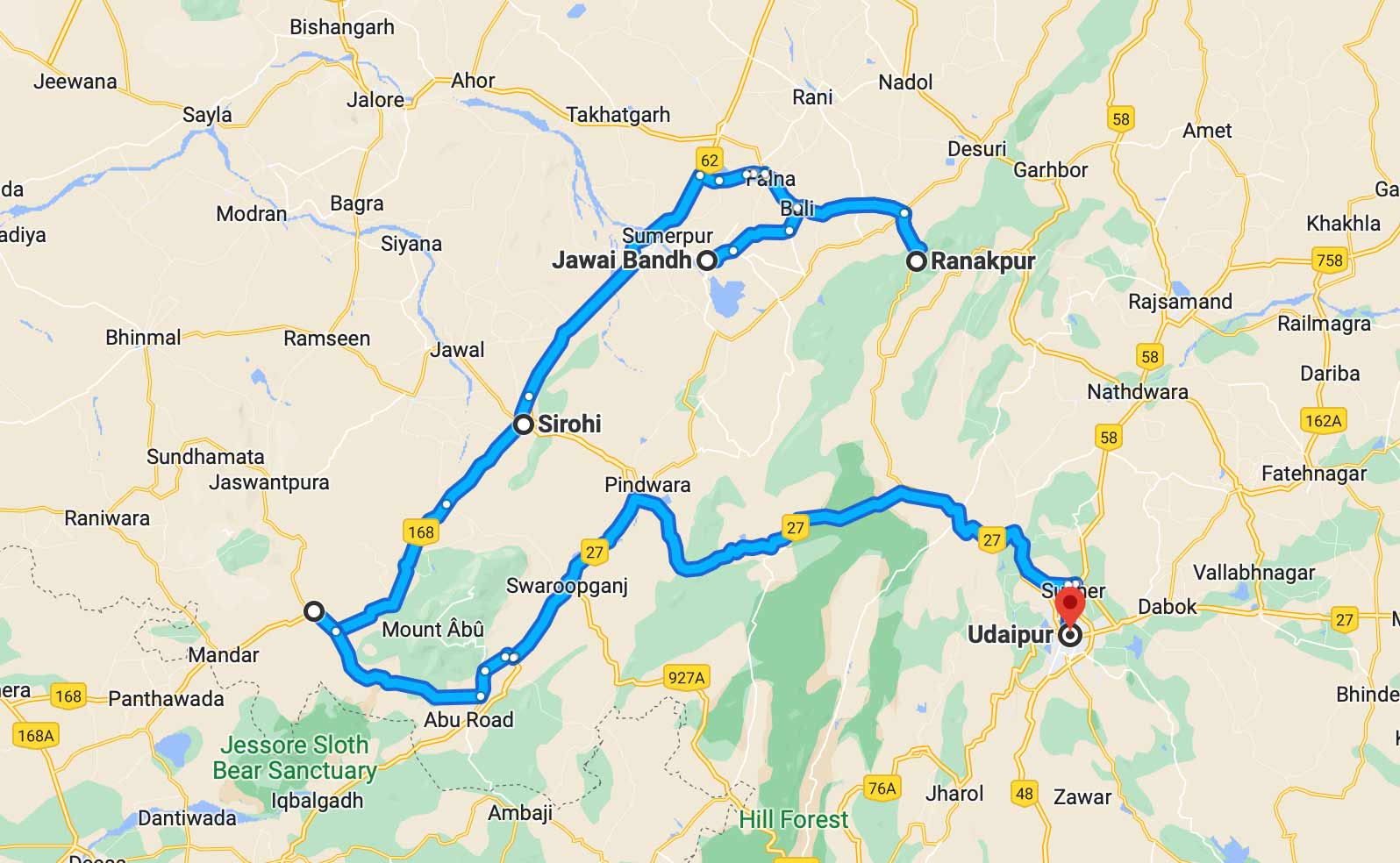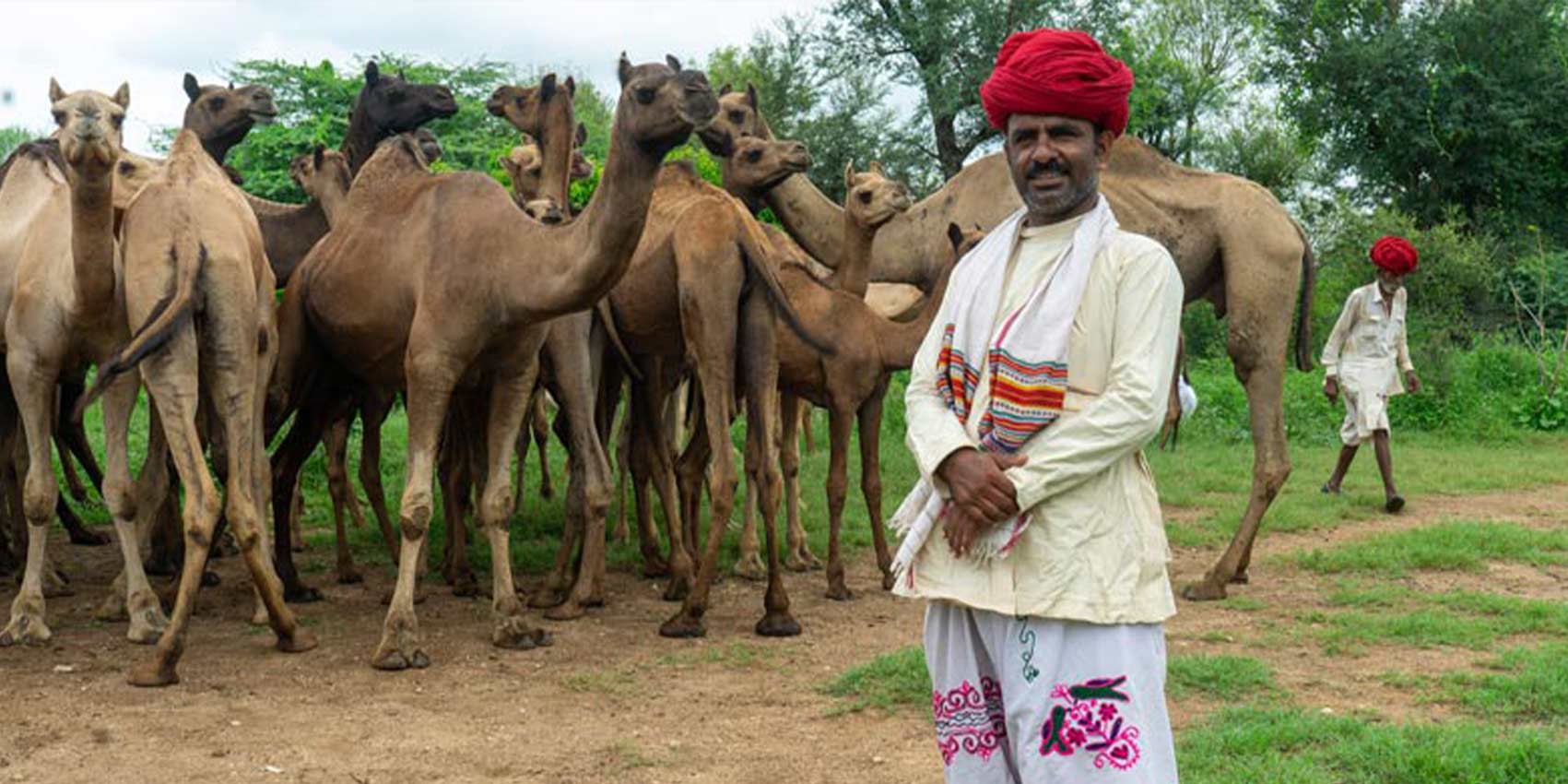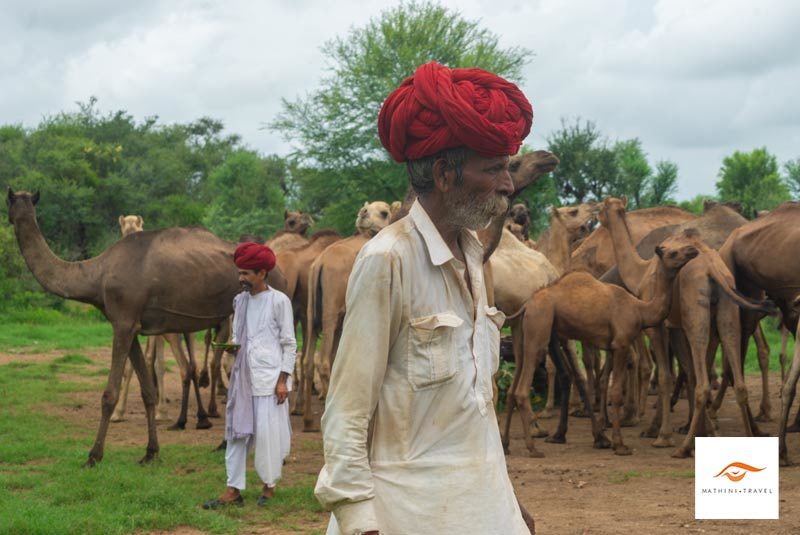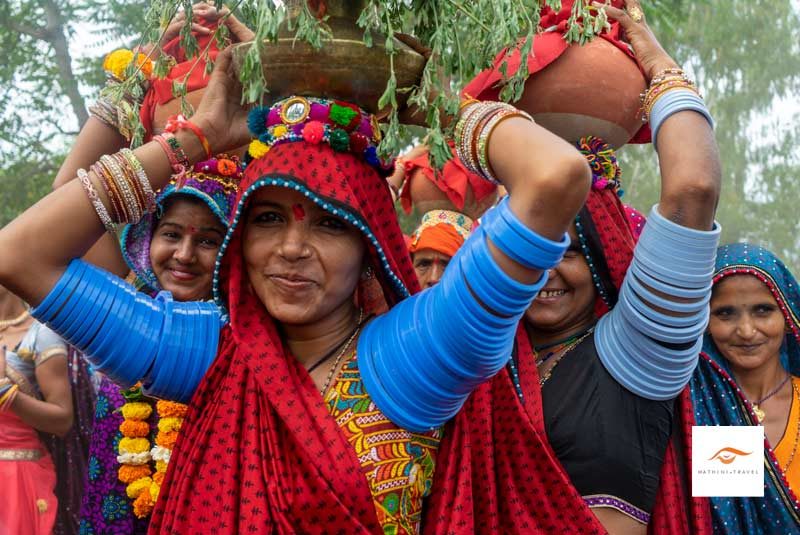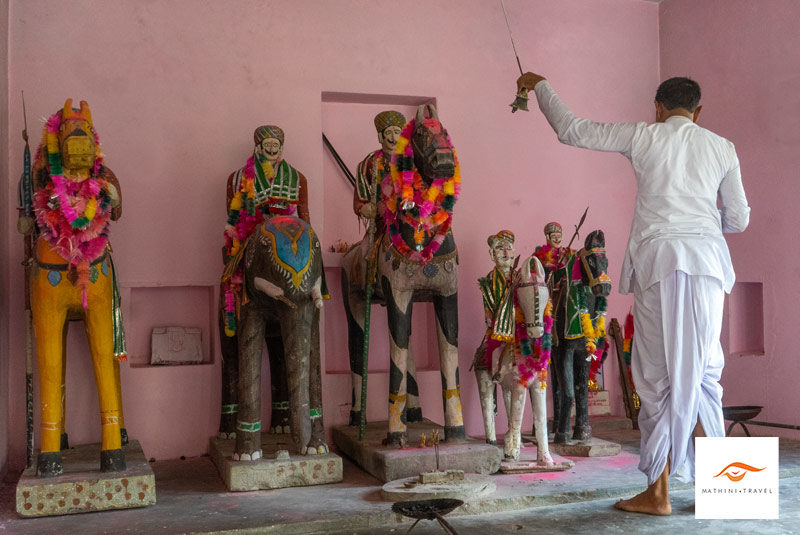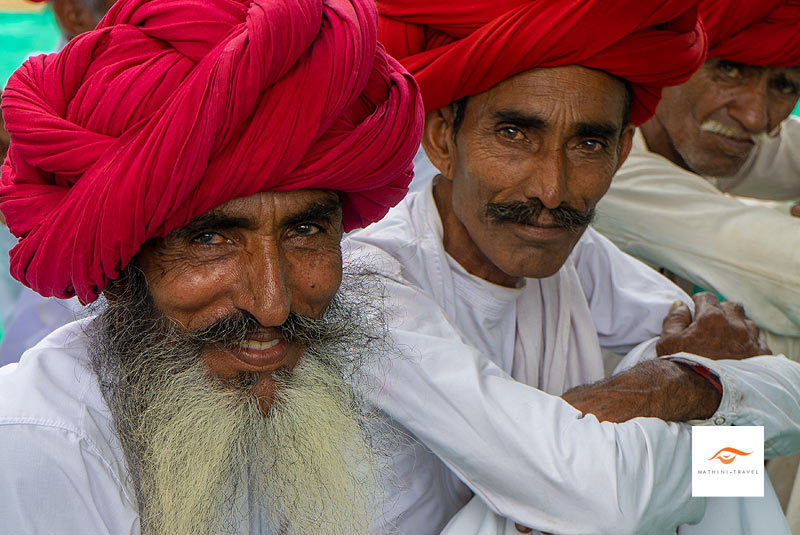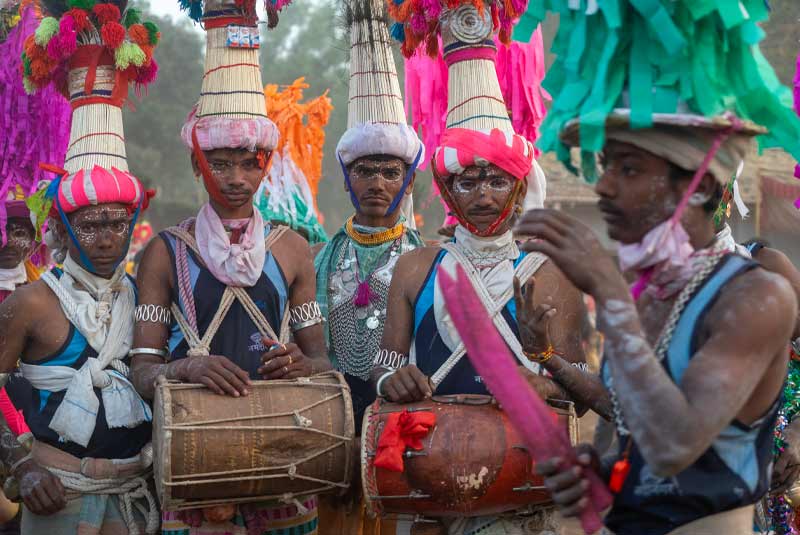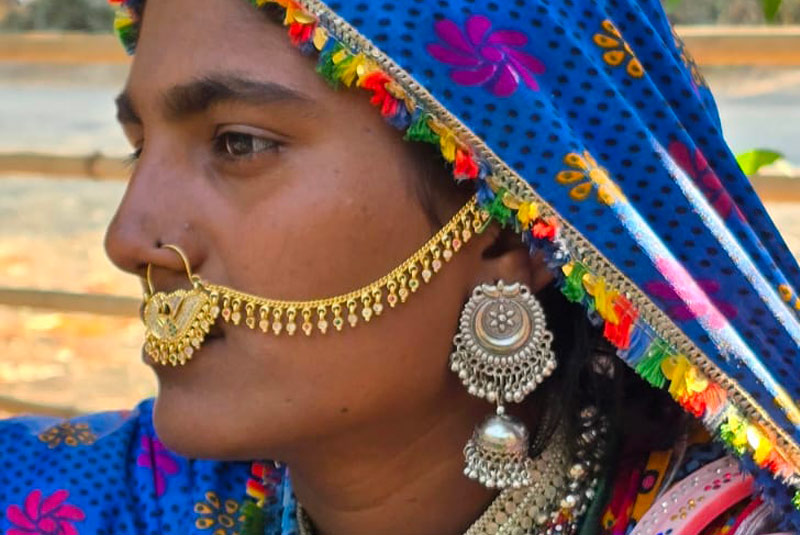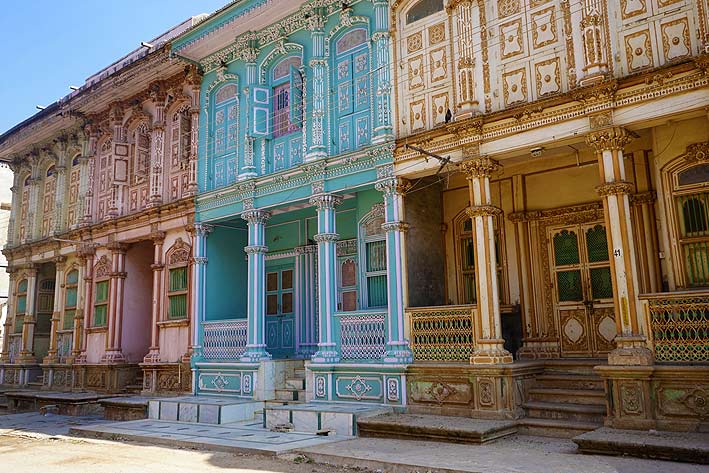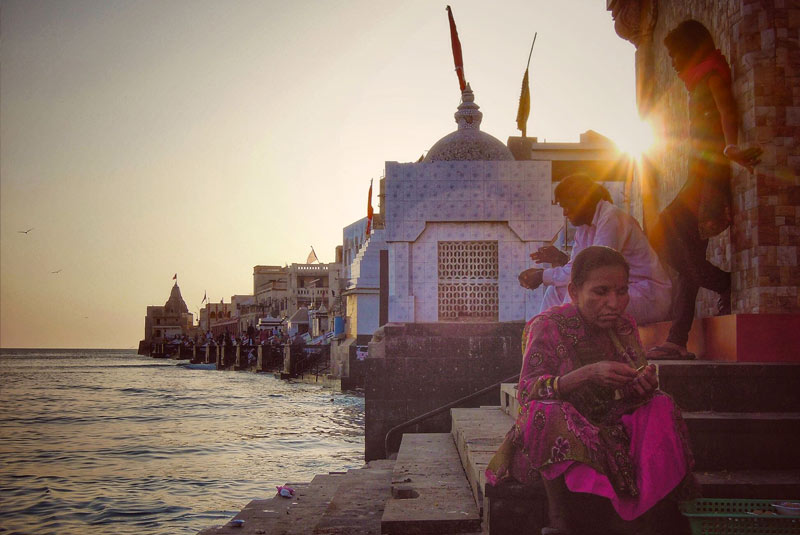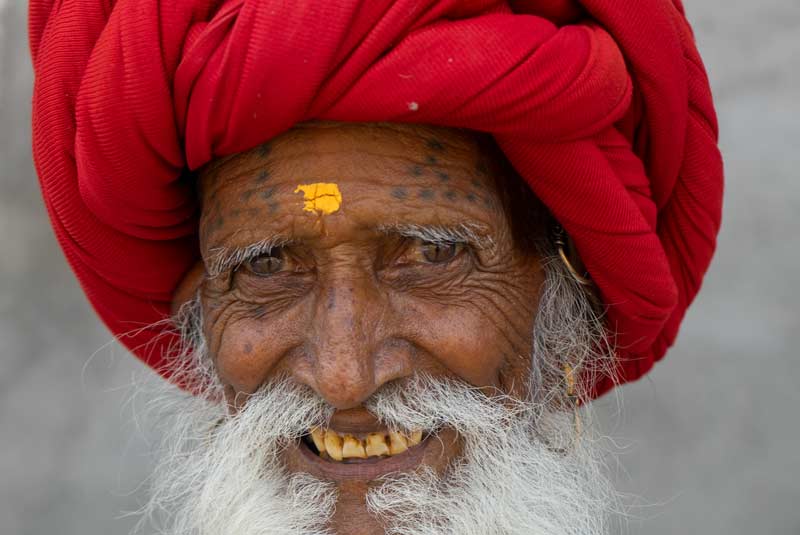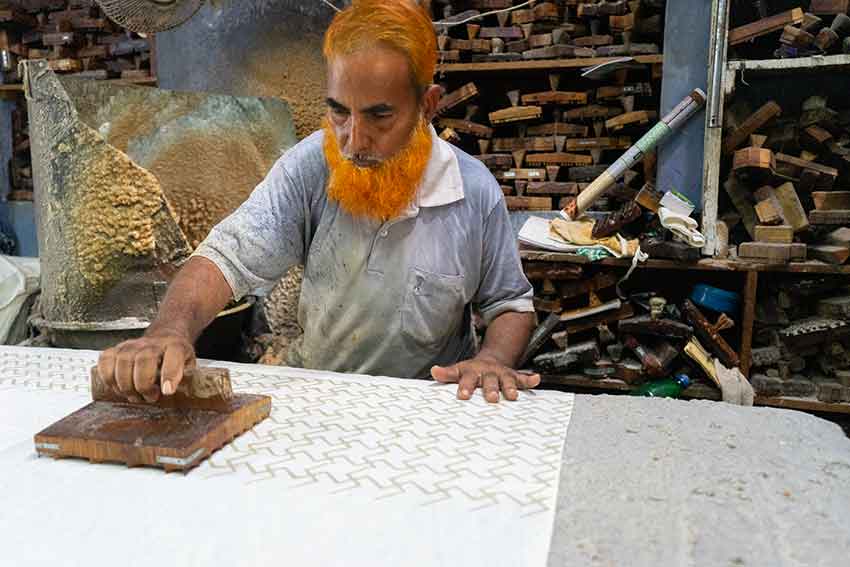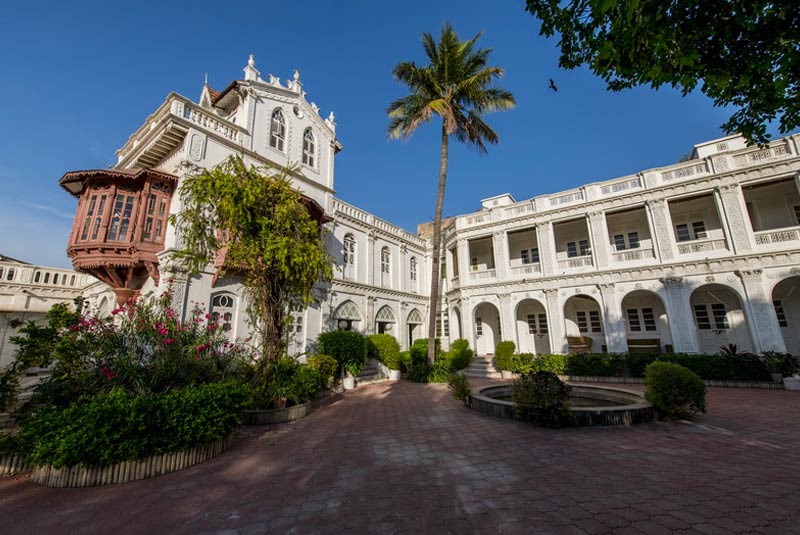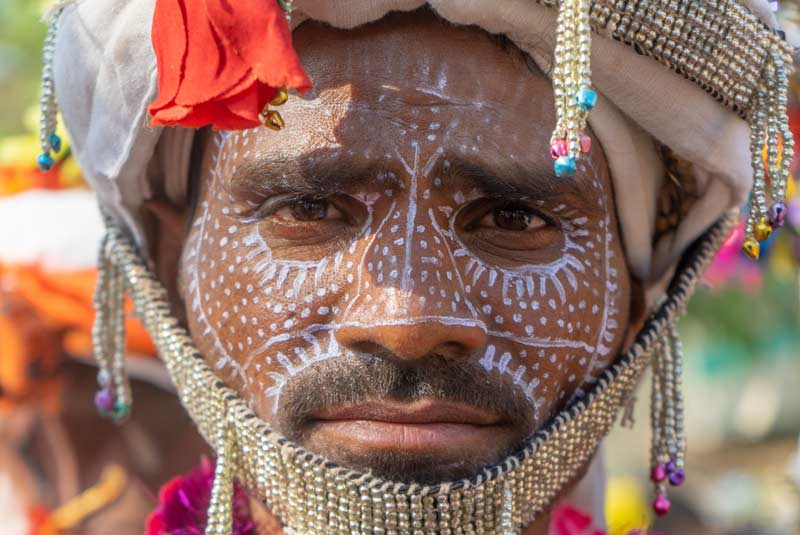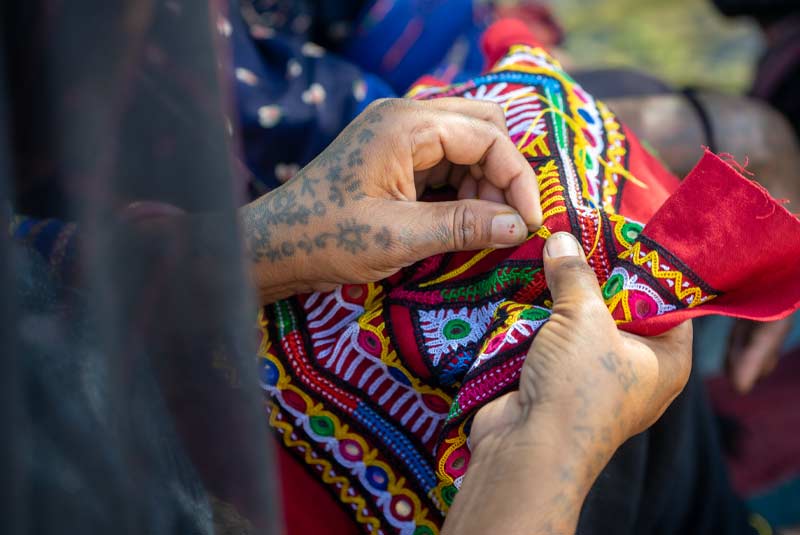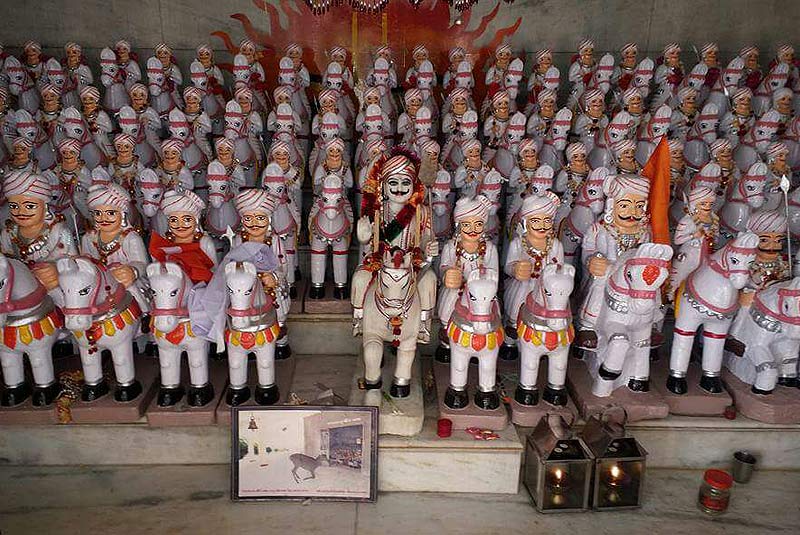Meeting the Rabari Raïka
4-day tour to meet the Rabari Raika in the Ranakpur and Mount Abu region of Rajasthan. Share precious moments with one of the oldest pastoral communities in India.
This trip begins in Ranakpur where you will be welcomed by Magan, a Rabari Raika, who will be your guide and host throughout your stay in Ranakpur. You will visit several temples in the surrounding area, then experience the daily life of the Rabari camel drivers during a half-day trek.
After Ranakpur, we’ll head to a small village at the foot of Mount Abu, where several semi-nomadic Rabaris have set up camp. You’ll meet the village’s Bhopa Rabari (a kind of shaman) and temples dedicated to Momaji, a local deity worshipped by the Rabaris. In addition to the Rabaris, you’ll encounter the Lohar community (ironworkers) and the Garasias, whose women are distinguished by their eccentric tunics with flower-like tassels on their shoulders.
Best time for this tour: October to March
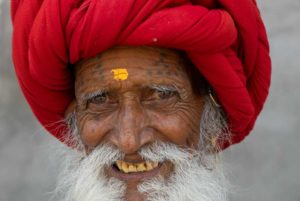
Originally, the Rabaris were a completely nomadic people, camel herders who traveled from village to village. Currently, only 30% of the Rabaris are nomadic, or rather semi-nomadic, leaving their villages during the dry season. As camel herding gradually declined in India, the Rabaris then turned to sheep, goat, and cattle farming to survive.
There are two main groups of Rabaris: the Rabaris of Rajasthan (also known as Raika, Dewasi, Desai) – who mainly inhabit the Marwar region (Jalore, Pali) and Gowar (Sirohi, Mount Abu) – and the Rabaris of Gujarat (the northern region of Saurashtra and Kutch), simply called “Rabari.” These two clans are themselves divided into 133 groups. In the Kutch region, for example, three subgroups of Rabaris are distinguished: the Vagadiyas, the Kachhis, and the Dhebariyas.
The price indicated above is an estimate. As we only offer tailor-made services, this budget depends on several factors (choice of services, number of people, type of car, time of year, inflation, etc.); the final price is that of your personalized (free) quote obtained after an in-depth discussion with you.
THIS TRIP INCLUDES:
- Double occupancy accommodation in hotels or guesthouses
- Full board + snacks and tea
- All transportation by Innova Crysta car with private driver (all expenses included)
- Camel trek (half-day)
- Rabari guide in Ranakpur on days 1 and 2
- Guide on Mount Abu on day 4
- 24/7 concierge service; we are in constant contact with you.
THE TRIP PRICE DOES NOT INCLUDE:
- International flights
- Domestic flights
- Visa fees
- Travel insurance (mandatory)
- Meals other than those listed in “included”
- Any arrangements not included in the program that result in additional costs
- Any personal expenses
- Tips
- Anything not listed in “included”
You may also like...
Ranakpur Temple Visit - Meet the Camel herders
*
Arrival in Ranakpur in the late morning (depending on your arrival location). You will drop off your luggage at a Rabari family's home, where you will be served a delicious homemade Rajasthani lunch.*
You will then depart with your Rabari guide to visit the Ranakpur Jain Temple and the adjoining Sun Temple.*
In the evening, head to the Rabari camel herders' camp. A meal prepared over a wood fire will be served.*
For the more adventurous among you, you'll sleep under the stars on a charpai, a traditional Indian bed. Otherwise, you'll spend the night in a guesthouse.Trek with camel herders - Visit of Rabari villages
*
Lunch will be eaten along the way, prepared by the camel drivers.*
After the trek, we will pick you up by car and tour several surrounding Rabari villages so you can immerse yourself in this unique culture.*
In the evening, enjoy a traditional dinner with the Rabaris / Overnight stay in a guesthouse or hotel.Ranakpur > Sirohi > Villages around Mount Abu
*
On the way, we'll stop at the Sirohi temple, whose history is linked to the Rabari people.*
We'll continue to a village nestled at the foot of Mount Abu. You'll stay in a guesthouse surrounded by nature, run by a Rajput family.Visit of semi-nomadic Rabari camps & other communities
*
We will also meet the Lohar (ironworkers) and Garasia communities, whose women wear eccentric tunics with flower tassels on their shoulders.*
Overnight at the guesthouseMount Abu > Udaipur
